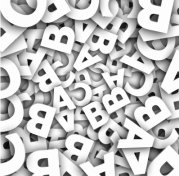care of the alphabet: a-D, such as Depression (including bipolar disorder)

 Last week, I updated again the nursing alphabet and the letters B, such as beds extended. Today, it continues in the Alphabet with the letter D.
Last week, I updated again the nursing alphabet and the letters B, such as beds extended. Today, it continues in the Alphabet with the letter D.
Depression/ bipolar disorder.
Manic Depression (also bipolar disorder) characterized by alternating phases of Depression and excessively elevated mood phases. The mood varies between absolute euphoria and the abyss of deep Depression.
The symptoms of the disease are according to the straight-through lived Phase in different ways. In the Phase of Depression, the Affected individuals suffer from a depressed mood and a great hopelessness. The Diseased suffer from sleep disorders and are lacking in motivation. Decreased appetite often has a weight loss. Manic depressive people mostly speak quietly and be delayed. You lacks self-awareness, and plagued with self-reproach. Not infrequently, they have thoughts of suicide.
In the manic phases are the phases of euphoria – the diseases are in an elevated mood. At the same time they are also aggressive and easily irritable. The Affected have a lot of energy and need during the manic Phase, little sleep. The Speech increased thirst. The Phase of euphoria is accompanied by a large self-importance, delusions of grandeur. Depressed people have a low threshold and a lack of sensitivity to others. In addition to self-indulgence and uncritical behavior of the Patients show a great spontaneity. So can change, for example, the taste of the Person, suddenly, completely. After the manic Phase has subsided, suffering bites to the Affected under strong conscience. This contributes to the fact that you are sliding back into a depressive Phase.
 Treatment of Depression/ bipolar disorder
Treatment of Depression/ bipolar disorder
A medical treatment of the disease is necessary, because people with bipolar disease suffer from the disease and, not infrequently, suicide are at risk. There are effective treatment options. However, relapses are always possible, so that a preventative treatment is extremely important, as you can read e.g. on this page.
A treatment option is therapy with mood-stabilizing drugs. The treatment is carried out both in the acute phases, as well as relapse prevention. In some cases, treatment with mood stabilizers is not enough. Then it is treated with so-called intervention drugs. This can be antidepressants, neuroleptics, hypnotics or sedatives. Accompanying psychotherapy should be done. In severe cases, inpatient treatment is required.
Photos: Gerd Altmann / pixelio.de
